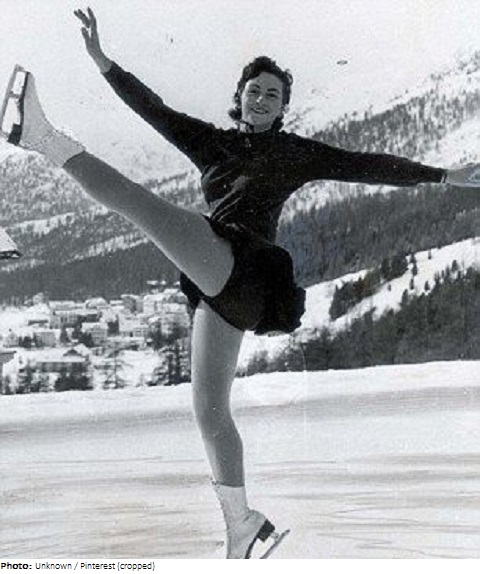
| Roles | Competed in Olympic Games |
|---|---|
| Sex | Female |
| Full name | Jeannette Eleanor•Altwegg (-Wirz) |
| Used name | Jeannette•Altwegg |
| Born | 8 September 1930 in Coimbatore, Tamil Nadu (IND) |
| Died | 18 June 2021 (aged 90 years 9 months 10 days) in Bern, Bern (SUI) |
| Affiliations | Queens Ice Dance Club, London (GBR) |
| NOC |  Great Britain Great Britain |
| Medals | OG |
| Gold | 1 |
| Silver | 0 |
| Bronze | 1 |
| Total | 2 |
Although born in India, Jeannette Altwegg was raised and educated in Lancashire where her Swiss father worked for the Liverpool Cotton Exchange. Herman Altwegg became a naturalized British subject but returned to Switzerland in 1946 when the Cotton Exchange was nationalized. Jeannette first began ice skating when she was eight years old but she was also an excellent lawn tennis player – in 1947 she was runner-up in the British Junior Championships at Wimbledon. But after winning the British figure skating title and finishing fifth in the World Championships in 1947, she gave up tennis to concentrate exclusively on skating. A bronze medal in the Olympics and fourth and fifth places respectively in the European and world championships in 1948 were an indication that she was making satisfactory progress towards her goal of being the best skater in the world.
In the years leading up to the 1952 Olympics, progress was maintained and each season saw Altwegg improve on the previous year’s results. In 1949, she finished third in both the European and world championships; in 1950 she improved to finish second in both championships and in 1951 she won the European title in Zurich and the world crown in Milan.
In Olympic year, Altwegg retained her European title in Vienna three weeks before the Games and she went to Oslo in 1952 as the reigning world and European champion. There she established a substantial lead in the compulsory figures and although she was only the fourth in the free skating, her early advantage was sufficient to give her a narrow victory over Tenley Albright of America, who was to succeed her as Olympic champion in 1956.
Immediately after the Olympics, Jeannette Altwegg retired and did not defend her world title the following month. Although she was offered vast sums to turn to professional she preferred to take up a teaching post at a children’s orphanage in Switzerland. She remained with the Pestalozzi Children’s Village for a year, and after being awarded the CBE in 1953 Jeannette married Marc Wirz, a Swiss engineer who was the brother of her friend Susi Wirz, the Swiss skating champion. Marc and Jeannette divorced in 1973 but there were four children from the marriage and in 1983 their daughter Cristina became the world curling champion at Moose Jaw, Canada.
| Games | Discipline (Sport) / Event | NOC / Team | Pos | Medal | As | |
|---|---|---|---|---|---|---|
| 1948 Winter Olympics | Figure Skating (Skating) |  GBR GBR |
Jeannette Altwegg | |||
| Singles, Women (Olympic) | 3 | Bronze | ||||
| 1952 Winter Olympics | Figure Skating (Skating) |  GBR GBR |
Jeannette Altwegg | |||
| Singles, Women (Olympic) | 1 | Gold |